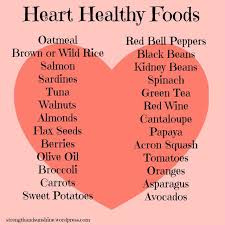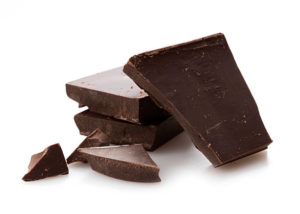
Diagnosed with Cancer? Your two greatest challenges are understanding cancer and understanding possible side effects from chemo and radiation. Knowledge is Power!
Learn about conventional, complementary, and integrative therapies.
Dealing with treatment side effects? Learn about evidence-based therapies to alleviate your symptoms.
Click the orange button to the right to learn more.
- You are here:
- Home »
- Blog »
- Healthy Living Products »
- Cocoa Flavanols Enhance Heart Health
Cocoa Flavanols Enhance Heart Health

…trials provide scientific evidence of the vascular effects of cocoa flavanols and suggest that the regular consumption of cocoa products containing flavanols may reduce risk of CVD
Its not enough to say that research indicates that cocoa flavanols enhance heart health. As a cancer survivor with late stage heart damage I need specifics. I was diagnosed with incurable cancer in early 1994. I underwent a host of chemotherapy regimens and an autologous stem cell transplant all in 1995. I developed chronic A-fib in the fall of 2010. An echo in ’16 and another one in ’18 confirmed reduced ejection-fraction as well as other damage.
It has been more than 20 years since I underwent a slew of cardio-toxic chemotherapy regimens and I’ve recently learning that my heart has a number of real long-term problems. Heart problems that may be incurable…
Ironically, my experience as a cancer survivor and cancer coach is helping me evaluate the world of heart therapies- both conventional and non-conventional. I’m sure that some day I will take the standard heart therapies such as ACE inhibitors and Beta Blockers. At this point in time however, I think I can manage my heart disease with evidence-based, non-conventional therapies.
Cocoa flavanols is the topic of this post. I’ve read a lot about chocolate being heart healthy for years now. The problem with chocolate, even dark chocolate, is that it contains sugar. Sugar means calories. Maintaining a healthy weight is a key heart health therapy.
The solution? CocaoVia capsules. Lots of cocoa flavanols (375mg) but only 10 calories per three capsules (daily dose). It has only been a week since I began supplementing with CocoaVia but I’ve been sleeping like a baby at night. I used to wake up frequently with breathing difficulties…no more.
Do you have heart problems? What do you take? What helps your heart? Scroll down the page, post a question or comment and I will reply to you ASAP.
Thank you,
David Emerson
- Cancer Survivor
- Cancer Coach
- Director PeopleBeatingCancer
Recommended Reading:
Cocoa Flavanol (dark chocolate) for skin, heart and brain health
Effects of cocoa flavanols on risk factors for cardiovascular disease.
Epidemiologic investigations support the hypothesis that regular consumption of flavonoid-containing foods can reduce the risk of cardiovascular diseases (CVD). While flavonoids are ubiquitous in plants, cocoa can be particularly rich in a sub-class of flavonoids known as flavanols.
A number of human dietary intervention trials with flavanol-containing cocoa products have demonstrated improvements in endothelial and platelet function, as well as blood pressure. These studies provide direct evidence for the potential cardiovascular benefits of flavanol-containing foods and help to substantiate the epidemiological data.
In this review, results from selective published trials with cocoa and chocolate focused on risk for CVD will be discussed along with a study we recently completed evaluating the effects of the daily consumption of flavanol-containing dark chocolate (CocoaVia) with and without plant sterol esters on CVD markers in a normotensive population with mild hypercholesterolemia.
In this study, the daily consumption of flavanol-containing dark chocolate was associated with a significant mean reduction of 5.8 mmHg in systolic blood pressure. Together the results of these human dietary intervention trials provide scientific evidence of the vascular effects of cocoa flavanols and suggest that the regular consumption of cocoa products containing flavanols may reduce risk of CVD.”
Cocoa flavanol intake improves endothelial function and Framingham Risk Score in healthy men and women: a randomised, controlled, double-masked trial: the Flaviola Health Study
“Cocoa flavanol (CF) intake improves endothelial function in patients with cardiovascular risk factors and disease. We investigated the effects of CF on surrogate markers of cardiovascular health in low risk, healthy, middle-aged individuals without history, signs or symptoms of CVD. In a 1-month, open-label, one-armed pilot study, bi-daily ingestion of 450 mg of CF led to a time-dependent increase in endothelial function (measured as flow-mediated vasodilation (FMD)) that plateaued after 2 weeks.
Subsequently, in a randomised, controlled, double-masked, parallel-group dietary intervention trial 100 healthy, middle-aged (35–60 years) men and women consumed either the CF-containing drink (450 mg) or a nutrient-matched CF-free control bi-daily for 1 month.
The primary end point was FMD. Secondary end points included plasma lipids and blood pressure, thus enabling the calculation of Framingham Risk Scores and pulse wave velocity.
At 1 month, CF increased FMD over control by 1·2 % (95 % CI 1·0, 1·4 %).
- CF decreased systolic and diastolic blood pressure by 4·4 mmHg (95 % CI 7·9, 0·9 mmHg) and 3·9 mmHg (95 % CI 6·7, 0·9 mmHg),
- pulse wave velocity by 0·4 m/s (95 % CI 0·8, 0·04 m/s),
- total cholesterol by 0·20 mmol/l (95 % CI 0·39, 0·01 mmol/l) and LDL-cholesterol by 0·17 mmol/l (95 % CI 0·32, 0·02 mmol/l),
- whereas HDL-cholesterol increased by 0·10 mmol/l (95 % CI 0·04, 0·17 mmol/l).
By applying the Framingham Risk Score, CF predicted a significant lowering of 10-year risk for
- CHD,
- myocardial infarction,
- CVD,
- death from CHD and CVD.
In healthy individuals, regular CF intake improved accredited cardiovascular surrogates of cardiovascular risk, demonstrating that dietary flavanols have the potential to maintain cardiovascular health even in low-risk subjects.”


